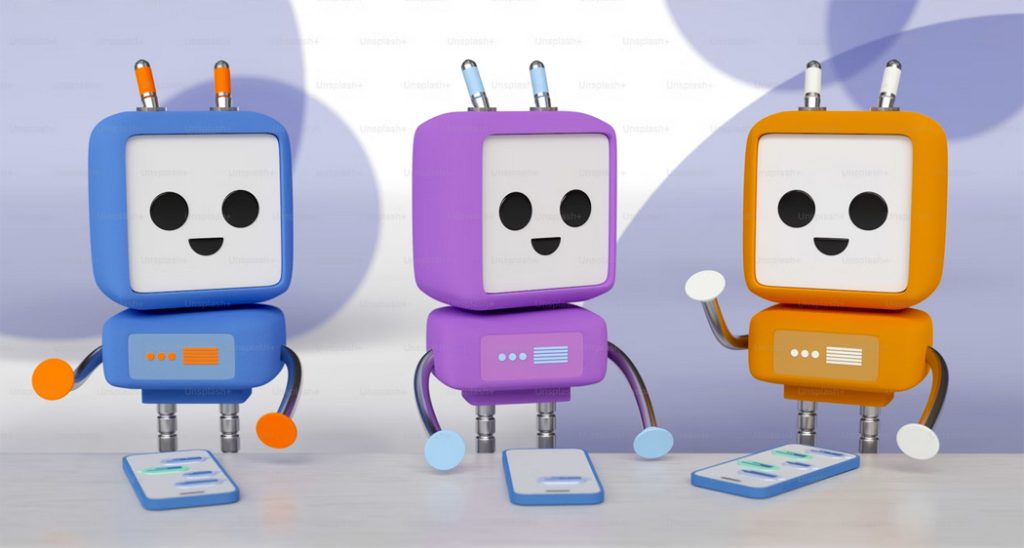
The year was 1998 and the major search engines were AltaVista, Lycos, and Yahoo. Their ability to do a full-text search on the internet’s many web pages was amazing.
Then Google came along. I wrote a column about it, and many people thanked me and said it was now the only search engine they used. Its results were superior, in part because it ranked pages more highly that had many other pages linking to them.
But today, Google seems archaic, and it’s being replaced by artificial intelligence chatbots.
As you know by now, ChatGPT-3.5, introduced in late 2022 by OpenAI, brought the revolutionary capabilities of artificial intelligence to the public. It attracted a million users within a week and 100 million within two months.
But it had two major limitations: it couldn’t search the web, nor could it give supporting web links in its responses. Instead, it used a statistical model to write text simply by predicting the likely next word based on the billions of words that it sucked into its Large Language Model. It had, and has, no way of knowing where the information came from.
It was smart, amazingly useful, and creative, but limited in this important way.
Now, however, there are chatbots that combine the best of both worlds: the amazing ability of AI to give articulate responses along with the capability of searching the web.
I’m a curious man, and when I have something I want to know, I now turn to chatbots. For example, I was curious about Apple’s new virtual reality headset, so I asked each of these free chatbots, “What’s the consensus of the reviews of Apple’s new virtual reality headset?” In seconds they each gave an excellent summary of the reviews—much more convenient than wading through a list of links in Google’s search results.
Copilot (Copilot.live.com). Like the other major tech companies, Microsoft struggled to play catchup when they saw the huge attention garnered by ChatGPT-3.5. They initially released Bing Chat, which required you to access Microsoft’s Bing search engine via their Edge browser. But now they’ve introduced Copilot both as a standalone website that works in any browser, and as a smartphone app. It uses the industry-leading ChatGPT-4.0 for its smarts and Bing for its search.
In order to integrate search into your prompts, you need to ensure that Search is toggled on in the Plugins tab at top right. Copilot lets you choose your conversation style: Creative, Balanced, or Precise. Each response is well formulated and comes with superscripts linking to related sources on the web. You can speak your prompts, and there’s also the option of having Copilot speak the response. At the bottom, there are links to learn more as well as suggested follow-up questions.
In addition to generating text, you can ask Copilot to create any image you can imagine.
Gemini (Gemini.google.com). In February I wrote about Google’s Bard, and even before the month was out, that information was outdated, as Bard was rebranded as Gemini, with new features.
Unlike Copilot, Gemini doesn’t automatically give citations for the information. Instead, if you want more information, you click on the G icon at the bottom. It then does a quick Google search to check all the information in the response. It uses a green highlight to indicate that the search verifies the accuracy and includes a small icon for each point that you can click on for more information. Clicking on it opens a drop-down window with more information and a link to a source.
If a specific point is questionable, it uses an orange highlight that indicates there may be contradictory information online and gives a link.
A unique feature of Gemini is that it returns three different drafts for each prompt. It shows you one, and if you click on Show Drafts, it gives the option of viewing the two alternate drafts.
As with Copilot, you can speak your queries and have it speak its response, and you can prompt Gemini to create images.
Perplexity (Perplexity.ai). When you enter a prompt in Perplexity, it searches the web and then uses artificial intelligence to summarize what it found. Like Copilot, for each point it includes superscripts that you can click on for more detailed information. Across the top of its response, it neatly lists several sources that it used for the information and gives the option to view additional sources. At the bottom, it gives examples of related queries. At the top right, it offers the option to see related videos and images.
All three of these are excellent tools—and free. Each has a $20 a month paid version with more features. For now, I’m delighted that the free versions offer so many capabilities.
Google, it was nice while it lasted, but I’m sorry, there are now other search tools in my life.
Find column archives at JimKarpen.com.
